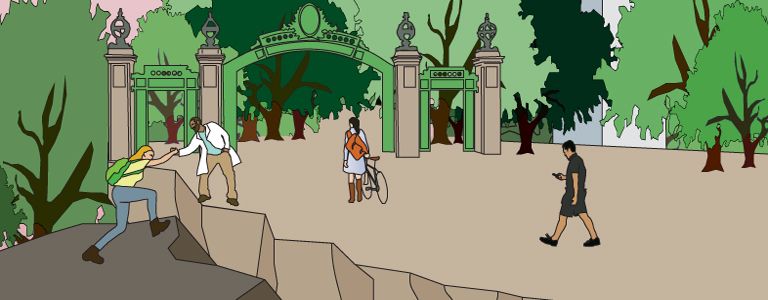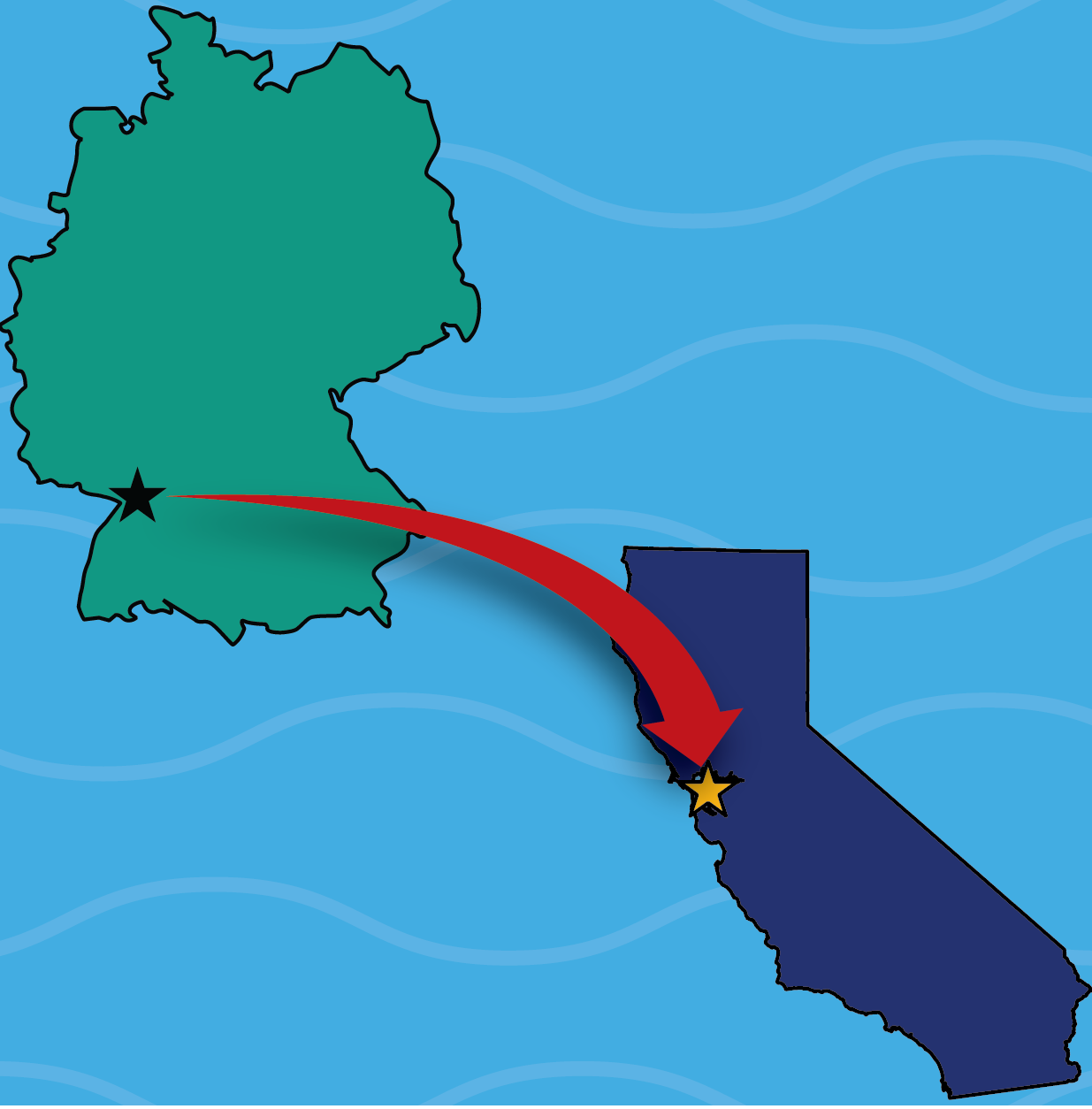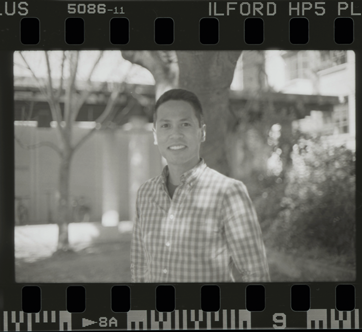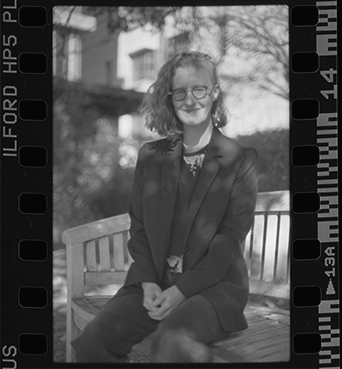
As one of the highest ranked public universities in the world, applying to UC Berkeley is intimidating. The application process can be especially overwhelming for students transferring from a community college—a population that made up around 40 percent of the incoming class in 2016.
Transfer students from community colleges encounter many hurdles that are not part of the traditional application process. Some of these hurdles include navigating an array of sources to figure out which credits will transfer and which classes will need to be retaken, as well as acquiring and submitting transcripts, often from multiple campuses. Additionally, the community colleges these transferring students come from may have fewer career-building resources, especially for those interested in pursuing science. Students from traditionally underrepresented populations seem to be the most affected by the hurdles faced in the transfer process. According to a 2017 study conducted by National Science Foundation, underrepresented minorities constitute 30 percent of the US population but only constitute 20 percent of the bachelor’s degrees awarded in science and engineering and only eight percent of doctoral degrees awarded.
Providing direction to these underrepresented students is one of the primary goals of the Bridges to the Baccalaureate (B2B) program, a summer research opportunity that trains ambitious transfer students from colleges around the Bay Area who are interested in careers in STEM. One of the more unique aspects of the B2B program is that it encourages students without any research experience to apply. According to Dr. Gary Firestone, one of the head principal investigators behind the B2B program, “Most programs attract a pool that tends to already be at a four-year university, that tends to already have some idea of what science is like. B2B, on the other hand, is geared towards those who may have been struggling academically or financially but have demonstrated a passion or commitment to science.”
[gallery size="medium" ids="15116,15117,15118"]
Students that participate in B2B typically come from the Transfer Alliance Program (TAP), an academic advising and enrichment program at 31 California community colleges that provides support designed to facilitate student transfers into baccalaureate-granting institutions. TAP coordinator Christina Tinsley explains, “There are plenty of bright, talented students with potential that may have experienced plenty of discouragement because of the way they look, their background, different cultural expectations.” She says the goal of TAP is to provide both guidance and academic tutoring—often from UCB graduate students—to these underrepresented students. According to Tinsley, “Those students receiving tutoring in STEM disciplines are encouraged by their mentors or teaching faculty to apply to the B2B summer program.” She explains that students participating in B2B receive guidance through the transfer process “with the goal of hopefully helping diversify the biomedical sciences.”
Since most B2B students have never been in an academic research setting, the program provides an immersive experience from day one. The summer begins with a five-day boot camp that teaches basic laboratory techniques and a three-day ethics course that challenges the students to reflect on responsible conduct in research. There are also weekly dinners meant to be a safe space for students to discuss their progress and thoughts about their research experience. Dinner is followed by guided discussions led by professionals about a variety of topics, such as preparing an elevator talk, applying to graduate school, or writing grants. These weekly meetings foster a sense of cohort unity and prepare students for some of the technical aspects they may encounter as scientists some day.
Firestone, a first-generation college student himself, empathizes with the idea that science is sometimes considered a black box by the general populace. “I knew I was interested in science, but I felt enormous pressure from my parents to become an M.D., largely because none of us knew there were other options at the time. I think a lot of the students in this program may be in similar situations.” B2B exposes students to alternative careers in STEM by showing them the daily reality of a career in biological research.
To learn the ins and outs of academic research, B2B students are individually matched with current graduate students or postdocs throughout various STEM research labs at UC Berkeley. Dedicated mentors are fundamental to the students’ success, and the matching process between mentors and B2B students has evolved drastically over the past several years.
During the program’s early days, mentors were sometimes placed into that role by surprise. According to Firestone, “Sometimes the person didn’t know they had a student until the day the student showed up, which could make things a bit rocky. Today, mentors go through an application process just like the B2B students.” The mentor applications help create a pool of mentors and undergraduates who are equally excited about their summer roles. Firestone says this strategy tends to lead to the best relationships between the summer students and their labs: “The students do very well when the labs are nurturing, and they’re integrated into the lab culture. They realize the lab can be a home away from home.”
To further facilitate a strong mentor-mentee relationship, the B2B program also works directly with the mentors to help them build a broad array of communication and teaching skills. B2B coordinators bring the mentors together for a workshop at the beginning of each summer where the mentors are broken up into groups and asked to answer questions like, “What is something you wish people knew about you?” or “What are your biggest fears associated with being a mentor?” Intimate questions like these can make anyone a little uneasy at first, but the discussions they generate work to allay any nervousness or trepidation about the mentor’s new roles by placing their fears out in the open. Mentors leave this meeting with a strong set of skills that will prove useful in the coming weeks.
The positive impact of the B2B program can be seen in the excitement shared by the summer students. Antonello Pagliuca, a B2B intern this summer, says, “The best way to explain my experience would be to say I am a kid who got locked in a candy store! Excited doesn’t even begin to describe it.” Christopher Duncan-Lewis, a graduate student and one of this year’s summer coordinators, comments, “The experience is completely transformative for the students. You see how over time they become comfortable with the jargon. Their confidence goes up tremendously when they get into the groove of things.” The program’s impact can also be seen in the numbers: since its inception seven years ago, a majority of the students that have participated in the program have transferred to four-year California research institutions. Eighty percent of students that applied were admitted to UC Berkeley, and others have been accepted to Stanford University, UCLA, and UC San Diego, among others.
Transferring to a four-year institution may always include a unique set of hurdles for community college students, but UC Berkeley’s Bridges to Baccalaureate program gives some of those students an opportunity to transform their interests in biological research into excitement and passion that will stay with them for years to come.
Kirsten is a PhD student in Integrative Biology studying adaptations to parasites. She loves Latin dance and manatees.
Featured image: Cameron Baker
This article is part of the Fall 2017 issue.





